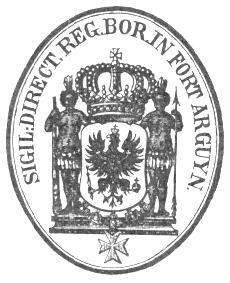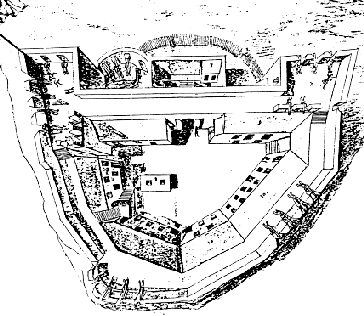|
Mauritania Society | Culture - Arts | Science - Education | Health Mauritania's Prussian past revealed: A desert pharmacy
"The last commercial Brandenburgian [a German state centred on Berlin that turned into Prussia] enclave of certain importance to the history of medicine is found on the desert island of Arguin, arid and rocky, just off the Mauritanian coast. The islet, with a surface of barely around 22 square kilometres, today only is found in very few atlases."
The ritual therapeutic dances, according to Mr Plehn, probably had arrived the Island of Arguin through cultural influences from modern day Senegal and Morocco and served to scare away the jinnis; the bad spirits held responsible for a large number of diseases that appeared suddenly, according to traditional popular Muslim medicine. The rhythmic movements and the music had to disturb and drive away the jinni causing the disease. Also the burial ceremonies corresponded to Muslim rites. Regrettably, for several diseases neither the European nor African medicines proved effective. This included the insanity suffered by many of the island's Prussian governors, often caused by isolation, depressions, abuse of alcohol, the heat and the negligence of their governments. Several were known to gradually lose the sense of reality, some slipping into extreme greed, others committing intolerable abuses against the native population and his own staff. "In April 1714, Governor Jan de Both managed to abort a rebellion in his garrison in a bloody manner. He tortured and let the dead bodies be hung up like 'lamb in the butcher's shop'. Other insurgents were taken away to desert islands. De Both transformed Arguin into a pirates' nest, skilfully using the Arabs against his own garrison and refused to obey to the King of Prussia, proclaiming: 'Probably he doesn't even know, this cretin, if I am loyal to him or not'." Finally, in 1721, Prussia lost interest in its African possessions and the islet fell into the hands of the French, then the Dutch and finally the French again, who gave up the desert castle in 1728. Under local control until Mauritania's colonisation in the 20th century, Arguin Island lost its importance and is today deserted. According to Mr Plehn, however, the island and its Prussian colonisation (1685-1721) had an impact on the history of medicine. The German professor concludes his article with a list of more than seventy medicaments used throughout human history that can be found on the small desert island. By Himar Suárez © afrol News - Create an e-mail alert for Mauritania news - Create an e-mail alert for Society news - Create an e-mail alert for Culture - Arts news - Create an e-mail alert for Science - Education news - Create an e-mail alert for Health news
On the Afrol News front page now
|
front page
| news
| countries
| archive
| currencies
| news alerts login
| about afrol News
| contact
| advertise
| español
©
afrol News.
Reproducing or buying afrol News' articles.
You can contact us at mail@afrol.com









